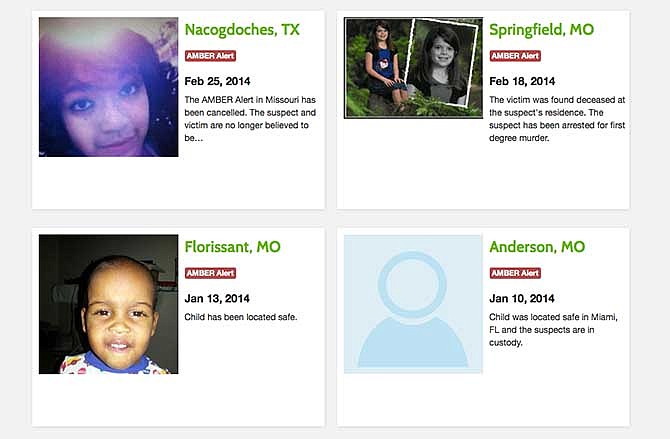KANSAS CITY, Mo. (AP) - The kidnapping and death of a 10-year-old girl last month has prompted Missouri lawmakers and law enforcement agencies to consider changes to the rapid alert system used to spread the word about possible child abductions.
Fourth-grader Hailey Owens was walking just a block from her home when she was abducted. Springfield police responded within 10 minutes of the initial 911 call, but the statewide Amber Alert didn't go out for more than two hours. Middle school football coach Craig Michael Wood has been charged in the girl's death after police reported finding her body later that night in Wood's basement.
An online campaign in southwest Missouri has focused on speeding up an alert system that requires three-page forms be filled out by hand and then sent by fax, The Kansas City Star reported. Questions about the system also came up after an Amber Alert issued on March 7 about 30 miles north of Springfield in Bolivar took almost three hours before it was broadcast across Missouri. That child was found safe in Springfield and reunited with his mother.
State lawmakers from southwest Missouri are looking at whether the Amber law needs to be tweaked.
"I want to make it clear I think the police in Springfield did everything they could do (in Hailey's case)," said Rep. Elijah Haahr, R- Springfield. "But if there's a way we could speed the process up and help the situation, that's really what we're looking into."
No legislation on the issue has been introduced in Jefferson City.
Officials with the state Highway Patrol defend the program but acknowledge that Hailey's case highlights a need for more training and other changes. The nationwide Amber Alert system was developed after the 1996 kidnapping and murder of 9-year-old Amber Hagerman in Arlington, Texas.
"We're just going to make it better," said Highway Patrol Capt. Greg Kindle, Missouri's Amber Alert coordinator. "That's all I can say."
Studies show the crucial need for quick action after child abductions, especially those committed by a stranger. In 76 percent of cases where abducted children are found dead, they are killed within three hours of being kidnapped.
Authorities say they must balance that urgency with making sure incidents meet Amber Alert criteria, including the requirement that a child be in imminent danger, to uphold the program's integrity and not saturate the public with alerts that aren't real or urgent.
When officers arrived to the abduction site, they first needed to interview witnesses and determine exactly what happened, Springfield police have said. Once police agencies send information to the Highway Patrol, radio dispatchers must input the information into three separate portals - one for law enforcement, another for media and a third for emergency broadcasting to the public. The goal is to streamline that process soon so the information can be submitted once to serve all three purposes.
The patrol also hopes to soon have an online form that officers can send electronically from the field rather than rely on handwritten forms. The patrol also plans to begin training local and county radio dispatchers on the Amber Alert system. They'll learn which reported abductions and critical incidents warrant an Amber Alert so they can get patrol officers thinking early on about that possibility.
In Hailey's case, a pickup truck pulled alongside her and the driver asked for directions. Witnesses saw her turn and start to walk away. Then the driver called out to her and she took one or two steps toward the truck. The driver got out, grabbed her, tossed her into the truck and sped off.
Marc Klaas, a national advocate for abducted children after his daughter Polly was kidnapped and murdered in 1993, said there should be no delays in sending out alerts when someone has been abducted.

